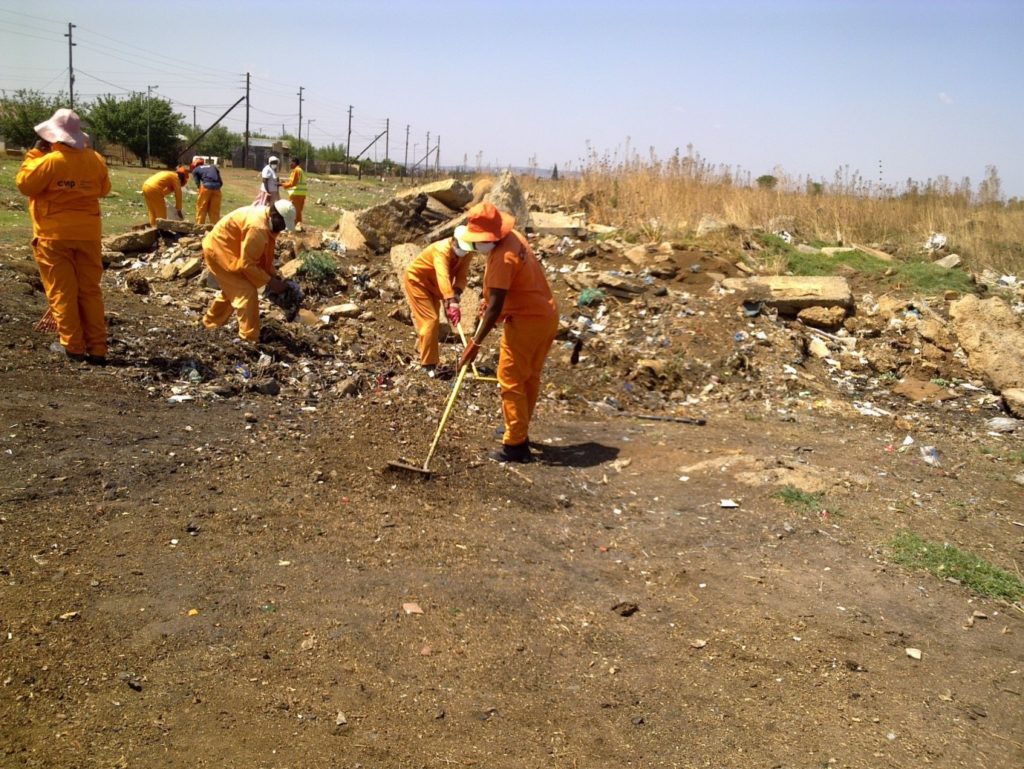Archives for September 2016
“I don’t want to have to add police officers to the list of people to avoid”
Today, three days after the explosion in Chelsea, NYC, I had an appointment on 23rd Street right across from where the bomb went off. There were cops everywhere today. As I exited the 23rd Street station there were four male cops standing on the stairway leading out of the subway talking to one another. Two on each side. As I got almost to the top of the stairs, one of the cops said, “Good morning”, but not in the tone where someone is genuinely wishing you a good morning. It was in the tone that meant something else entirely. It even had that inflection that suggested I owed him a reply. The other three just went quiet as I kept going. I was so annoyed that at a time when people are still somewhat on edge, the people that are supposed to be there to keep us safe make us feel just the opposite.
Of all the street harassment I experienced, I don’t want to have to add police officers to the list of people to avoid. In the larger scope of things it’s nothing compared to the reasons other people have to fear the police, but it’s just another way we are constantly made to feel unsafe in public spaces.
– Ali
Location: New York City, NY
Need support? Call the toll-free National Street Harassment hotline: 855-897-5910
Share your street harassment story for the blog.
See the book 50 Stories about Stopping Street Harassers for ideas.
“I asked him what the F is wrong with him”
I was getting lunch at the Wawa when a man who was working on the construction site next to the Wawa held the door for me to walk through. When I thanked him, he said, “You’re welcome beautiful,” so when I opened the second door I half closed it behind me before he went to walk through as a way to let him know that the behavior was unwanted. He followed me towards my car from a distance and whistled at me not once but twice. I felt disgusting and actually wanted to change my clothes even though there was nothing wrong with what I was wearing. I asked him what the F is wrong with him and told him that I am a human being not an object.
– MC
Location: Warminster, PA
Need support? Call the toll-free National Street Harassment hotline: 855-897-5910
Share your street harassment story for the blog.
See the book 50 Stories about Stopping Street Harassers for ideas.
South Africa: How Johannesburg Infrastructure and Transport Systems Contribute to Street Harassment
Nyasha Joyce Mukuwane, Johannesburg, South Africa, SSH Blog Correspondent
Johannesburg is marketed as a world-class African city. In many ways it is, with a burgeoning middle class population and tourist and cultural attractions. High rise buildings in Sandton have turned it into a millionaire’s playground and it has been named Africa’s richest square mile. Precincts such as Maboneng are where the hipsters and the creative go to play and the nightlife extends very late via restaurants, pubs and clubs all over Johannesburg.
However, what is not world-class is the treatment of women on the streets who are running, walking, and going about their daily lives. What the tourist bureaus don’t show is the vulnerability of women and children in poorer areas who have to travel a long distance to school, the clinic and to places of employment. The average under-privileged woman experiences constant street harassment and threats of potential violence against her.
Johannesburg has been identified as a disorderly city with the worst instance of urban sprawl in South Africa, therefore a car is a necessity. It is a necessity as a 90 minute commute is halved with a car. Simple daily tasks such as school runs, grocery shopping and attending classes are completed easily. Owning a car in Johannesburg helps you keep up with the fast pace of the city, allowing you to enjoy what the city has to offer and most importantly, a woman’s exposure to harassment on the streets is reduced. Urban sprawl and the public transport system leave women vulnerable to street harassment.
Public transport system
Owning a car is simply out of reach for women who are lowly paid without steady streams of income. The majority of people who need to commute around Johannesburg make use of mini buses which are called taxis. These taxis transport people from farm holdings, informal settlements, townships and urban areas. They are convenient and relatively inexpensive. However many women have been harassed, humiliated, groped and assaulted by taxi drivers and other male passengers.
The train can also be another harrowing experience. The most horrifying tale I heard is a woman realizing that a stranger had ejaculated on her skirt in a packed train ride. Personal space does not exist aboard a Metrorail train. In stark contrast to the sleek, smooth running Gautrain, most disadvantaged women use the Metrorail to get around. The Gautrain has stops at 10 stations where only privileged people would find it convenient, like heading to financial hubs or the airport.
The typical work day of a woman in a township called Orange Farm would have her wake up before dawn to get a taxi. The majority of Orange Farm doesn’t have streetlights. The first taxi of the day that will drop her off at the Metrorail station as it is too far to walk. Besides that, there is long grass along the road. The train takes her to the CBD where she takes another taxi to get to her place of employment in Sandton. All modes of transportation will pose their own potential threats of harassment and sexual violence against her. It will take at least two hours for her to get to work in the morning if there are no incidents with the train schedule or traffic. Then she has to travel another two hours again after work, in the dark, 6 days a week, every month – all the time.
Street harassment is not necessarily seen as an issue to be dealt with by authorities and often law enforcement is not proactive but rather reactionary to incidences of escalated street harassment, such as assault or rape. The Nisaa Institute for Women’s Development works in Orange Farm where community members identified a stretch of veld with dumped garbage and long grass where men are raping and mugging women and a woman’s dead body had been found previously. With Nisaa’s support, community members mobilized themselves and cleared the area of debris and long grass. City officials and the local councillor promised that a park w0uld be put in place to make the area safer. That was in 2013 and they are still waiting. The community members have since become demoralized.

Picture courtesy of Nisaa Institute for Women’s Development
Disadvantaged women face street harassment everyday because of the spaces they occupy and the modes of transport they use. Townships were deliberately placed in inconvenient areas to keep people of colour from spaces of privilege by the apartheid government. A privileged woman is not completely immune to street harassment but her material possessions such as a car and the exclusive spaces in which she moves around in create a buffer against street harassment — whether real or imagined. She has the luxury of letting her guard down once in a while. In a literal tale of two cities, I ask again: Is Johannesburg truly a world-class African city?
Nyasha is the public awareness coordinator at the Nisaa Institute for Women’s Development in Johannesburg, South Africa, where the main goal is counselling and sheltering survivors of domestic abuse. She has edited two books by survivors that are available to download for free from the website www.nisaa.org.za.
United Kingdom: Freshers’ Week & Ending Sexual Harassment
Ness Lyons for UNmuted Productions, UK, SSH Blog Correspondent
 Today marks the start of Freshers’ Week here in the UK. Over 400,000 undergraduates begin their first week of their first term of their first year at university. A longstanding institution, ‘Freshers’ Week’ – or ‘Welcome Week’, to give it it’s formal name – is fun, flirty and fabulous. A lot of planning goes into making it so and this year, more so than any other, a lot of effort has also gone into ensuring students’ sexual safety.
Today marks the start of Freshers’ Week here in the UK. Over 400,000 undergraduates begin their first week of their first term of their first year at university. A longstanding institution, ‘Freshers’ Week’ – or ‘Welcome Week’, to give it it’s formal name – is fun, flirty and fabulous. A lot of planning goes into making it so and this year, more so than any other, a lot of effort has also gone into ensuring students’ sexual safety.
“Freshers Week is a celebration so please treat it as such,” states the website for Sussex University’s Student Union. “Respect other students, their bodies and their choices. If you’re initiating sexual activity with someone, make sure they are as into it as you are, and that they have the freedom and the capacity to make that decision themselves.” There’s an unfortunate irony in that statement; this is the same university that last month made a decision to continue to employ a lecturer convicted of assaulting his student girlfriend.
The website Unilad has also done a U-turn when it comes to its attitude towards female students. Four-and-a-half years ago, the site was temporarily suspended after making a joke that encouraged rape during Freshers’ Week. This autumn however, it’s turned over a new leaf. Unilad has paired with the charity Drinkaware to raise awareness of ‘booze-fueled sexual harassment’; their research shows more than half of 18-24 year old female students have experienced sexual harassment on a night out. Unilad and Drinkaware are campaigning to get young people to ‘call out’ such incidents by using the hashtag #GropeFreeNights.
Drinkaware has also launched a non-virtual initiative to protect drunk students from harassment. The Drinkaware Crew are specially trained staff who will patrol student nightclubs and drinking venues in four areas of the UK, including South Wales. Their aim, according to South Wales Police and Crime Commissioner Alun Michael, is to “support customers who are vulnerable as a result of drinking too much and prevent them from potentially becoming victims of crime.” While this quote gives the impression the Drinkaware Crew are there to protect all students from all types of crime, including petty theft, the sober fact is they’re in South Wales because of a series of sexual assaults that took place in Cardiff city centre during the 2015 Freshers’ Week period.
Following the attacks, the police, councils, universities and student bodies in both Cardiff and Swansea formed a task force to prevent the same from happening again this year. Aside from the Drinkaware Crew, they have implemented a Safe Taxi Scheme and Student Safety bus to help students get home safely. While these are all good practical initiatives, further progress has been made by Cardiff University in launching a ‘No Joke’ anti-lad culture campaign in April of this year and NUS Wales running consent workshops. Instead of simply removing potential victims from harm of sexual harassment and assault, it is after all far better to remove the actual risk and that’s what we should see more of.
Ness Lyons is a playwright, filmmaker and spoken word poet. She runs UNmuted Productions, is a member of Soho Theatre Writers’ Lab and is currently developing a script with an award-winning production company. Follow her work at: nesslyons.net and on Twitter: @lyonsness
